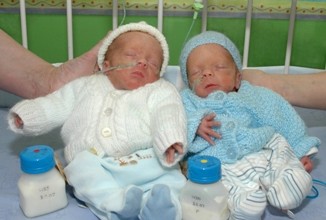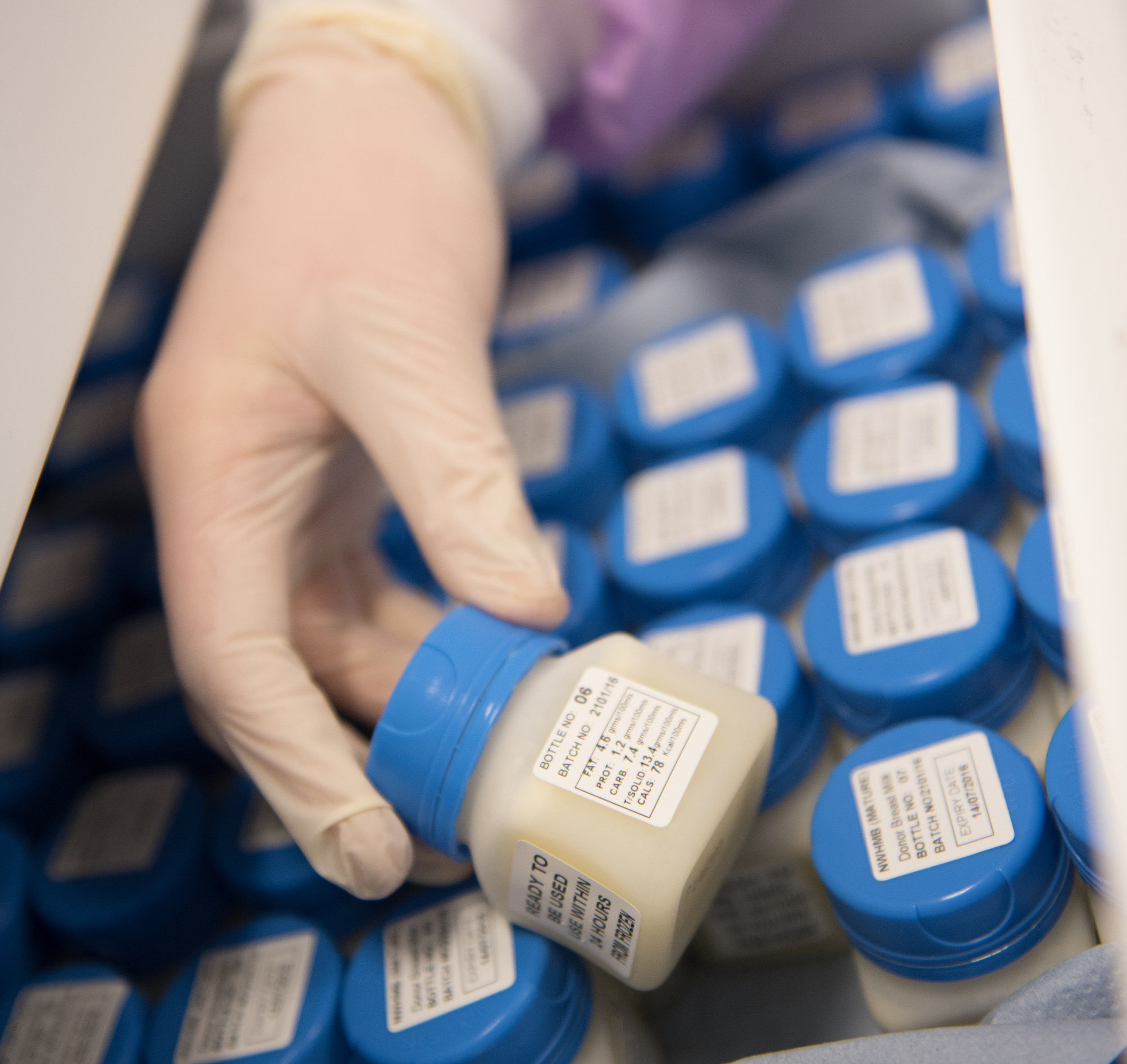
As many of you know SSCBB is not just about delivering blood, we carry so many more items that help play a part in the health of patients. One of those items we carry is Human Breast Milk. But what is it all about. Emma Savage, Operations Manager at the Northwest Human Milk Bank tells us more.
We provide safe, screened donor milk to babies in need from the Northwest Human Milk Bank (NWHMB), based at the University of Chester, the largest milk bank in the UK. NWHMB supplies safe, screened donor milk to over 70 hospital neonatal units throughout England, Wales and Ireland as well as providing milk to many families at home. NWHMB is an NHS service and only supplies donor milk on clinical request from a health professional.
Donor milk is human milk collected from donor mums then screened, processed and pasteurised. Breastmilk gives babies the best possible start in life but sometimes there are reasons why the mother of a new born, particularly a premature baby, cannot breastfeed herself. The mum might be physically unable to breastfeed due to illness, or perhaps needs help to establish her milk supply in the first few days following the baby’s birth. Donor milk helps to protect premature babies from infection, has a protective role against the serious gut condition necrotising enterocolitis and is easier to digest than formula milk. Each year, around 250 breastfeeding mums give their excess milk freely to the milk bank. Many donors have had premature babies themselves and found out about donating through a neonatal unit, however any breastfeeding mother can donate as long as they meet our strict criteria.
Donors provide a complete medical history and have blood tests to make sure they are not carrying any diseases that can be transferred to a baby (HIV, hepatitis B and C, HTLV and syphilis). Donors are also screened with lifestyle questions to check that they do not smoke or vape, exceed recommended caffeine or alcohol levels, take certain medications or have exposure to infectious disease. Following guidance from the milk bank about how to safely express and handle milk, it is frozen and stored at the donor’s home then collected by volunteer drivers or blood bike services including SSCBB for delivery to the milk bank. Each donor’s milk is processed separately. The milk is defrosted then sieved and mixed in large jugs to ensure it has a good balance of nutrients. A sample is taken prior to pasteurisation and sent for microbiology screening. If the sample is found to be
contaminated the whole batch of milk is discarded. The milk is poured into small sterile
bottles, sealed with a tamperproof seal and pasteurised. Pasteurisation (heat treatment) ensures the milk is safe to feed to any baby. Bottles are labelled with a unique number and expiry date. Milk is frozen immediately and only issued to babies when microbiology screening shows that it is free from contamination. Every year NWHMB processes around 2000 litres of donated milk and 95% of this milk passes microbiology screening. Processed milk is delivered to hospitals from NWHMB in Chester or from one of a network of hospital depots in Chester, Hull, Manchester and Preston. Hospital depots store processed milk on our behalf to make it easier for hospitals in their local area to access donor milk 24 hours a day. Milk is delivered at short notice at no cost by a team of blood bike services including Shropshire Staffordshire and Cheshire Blood Bikes, who ensure that milk is available for vulnerable babies at all times. On arrival at the neonatal unit, the milk is defrosted prior to use and given to the baby a gastric tube or by bottle.



